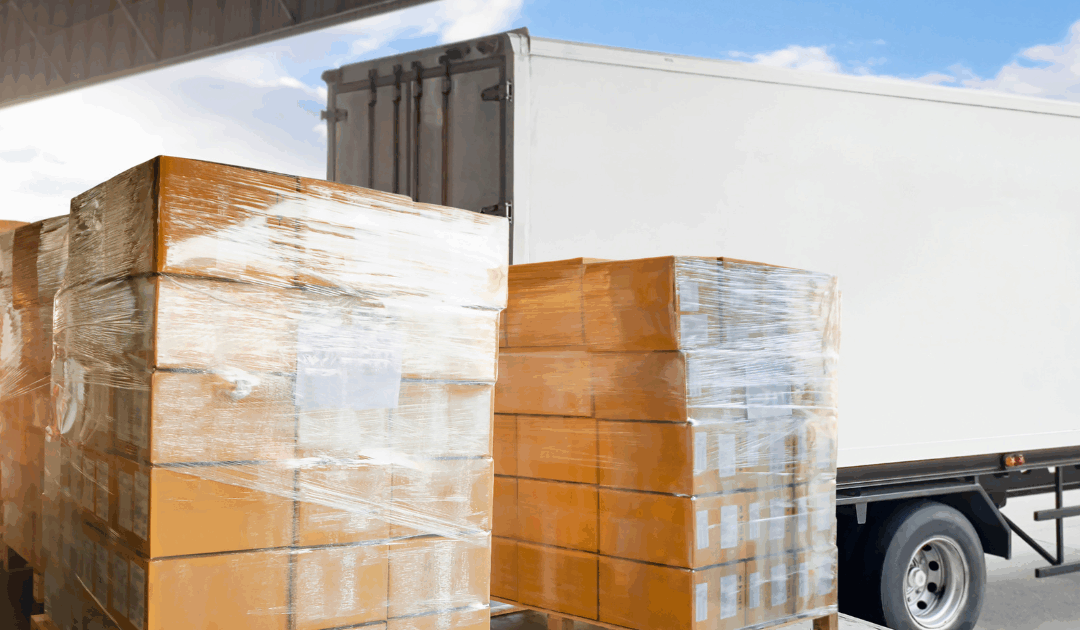LTL vs. FTL Shipping: How to Choose the Most Cost-Effective Freight Option in Houston
Should I Choose LTL or FTL Shipping?
Here’s the simple answer:
Less-Than-Truckload (LTL) is your most cost-effective choice for small, flexible shipments.
Full Truckload (FTL) is the right choice for large, time-sensitive, or fragile freight.
But how do you decide which is right for your specific shipment right now? With over 2 decades of experience in the industry so we trust that our simple 4-step checklist will help you make the right call.
Quick Definitions: LTL vs. FTL
Think of it like ride-sharing versus a private car.
What is LTL (Less-Than-Truckload)? LTL is like a public bus or carpool for your freight.
How it works: Your shipment, typically 1–6 pallets, shares space on a truck with freight from other companies. The truck makes multiple stops at sorting terminals along its route. The Primary benefit is that you only pay for the portion of the truck you actually use.
What is FTL (Full-Truckload)? FTL is like a private charter or taxi.
How it works: You pay for the entire truck, whether you fill it or not. Your freight is the only cargo on board, and the driver goes directly from your facility to the destination. There are no stops and no transfers.
LTL vs. FTL Comparison Table
|
Feature |
LTL (Less-Than-Truckload) |
FTL (Full-Truckload) |
|
Best For |
Small, cost-sensitive shipments |
Large, time-sensitive, or high-value shipments |
|
Shipment Size |
1–6 pallets |
10+ pallets |
|
Weight |
150–10,000 lbs |
10,000–45,000+ lbs |
|
Cost Structure |
Pay for the space you use (by weight, class, & density) |
Pay a flat rate per mile for the whole truck |
|
Transit Time |
Slower (multiple stops at terminals) |
Faster (direct point-to-point) |
|
Risk of Damage |
Higher, freight is loaded and unloaded multiple times |
Very low, loaded once and unloaded once |
|
Scheduling |
Estimated pickup/delivery windows |
Firm, pre-set appointment times |
Decide Between LTL vs. FTL: 4-Point Checklist
When you have a shipment ready, go through these four questions to find your most cost-effective option.
- How BIG is your shipment? (The “Calculator”)
This is the most important factor. This is where you can get the most value.
- Question: Are you shipping 1–6 standard pallets? Is the total weight under 10,000 lbs?
- Decision: Start with LTL, it’s almost always your most cost-effective option.
If you’re shipping more than 10 pallets, FTL is the clear winner.
- How FAST do you need it? (Speed & Urgency)
The cost of a service isn’t just the invoice; it’s also the cost of a delay.
- Question: Do you have a strict, must-hit delivery appointment? For example, a retailer’s rigid delivery window, a time-sensitive event, or a construction site delivery that will hold up a crew?
- Decision: Choose FTL. The direct, uninterrupted route and firm schedule are non-negotiable.
If you have flexibility (e.g., “it just needs to get there in 3–5 days”), LTL is the more economical choice.
- How FRAGILE is your freight? (Risk)
In other words, what is the cost to replace your goods if they are damaged?
- Question: Are you shipping high-value electronics, sensitive medical equipment, custom-built furniture, or fragile, non-stackable items?
- Decision: Choose FTL. FTL is a “one-touch” service: loaded at your dock, sealed, and unloaded at the destination. The extra cost is cheap insurance.
With LTL, your freight will be loaded, unloaded, and re-loaded at multiple terminals. This is called “trans-loading,” and every touch increases the risk of damage.
- What about “In-Between” Shipments? (The Expert Tip)
This is the gray area where most Houston businesses overpay.
- Question: What if I have 8 pallets? Or 10? Or my freight weighs 15,000 lbs? It’s too big to be cost-effective for LTL, but it’s too small to fill a whole truck.
- Decision: You have two better options that are better than standard LTL or FTL
- Volume LTL: You get a “volume quote” from an LTL carrier for a dedicated chunk of their trailer.
- Partial Truckload (PTL): This hybrid service finds an FTL truck that already has a primary load but has extra space. Your “partial” load rides along, getting FTL-style direct service (less handling) for a price closer to LTL.
The Solution: You don’t need to be an expert in this. A local logistics partner like us can instantly quote your “in-between” shipment as both Volume LTL and PTL to find the hidden savings you’d otherwise miss
Should I Have a Local Logistics Partner in Houston?
The guide above is great, but if you do business in Houston, you know it isn’t a “general” market. We have the Port of Houston, massive distribution centers, and notorious traffic. Only a local partner would understand this.
- Local LTL: We have established, consolidated LTL networks right here in Houston. This means your LTL freight moves faster and typically costs less because it isn’t waiting at a terminal in another state to get routed.
- Local FTL: Need an FTL truck today to handle a hot shipment from the Port or move product before a storm? The experience and relationships we have formed in the Houston market over the past 30 years will get you what you need faster than a national, out-of-state call center.
Partner with Houston’s most reliable transportation and logistics experts.
